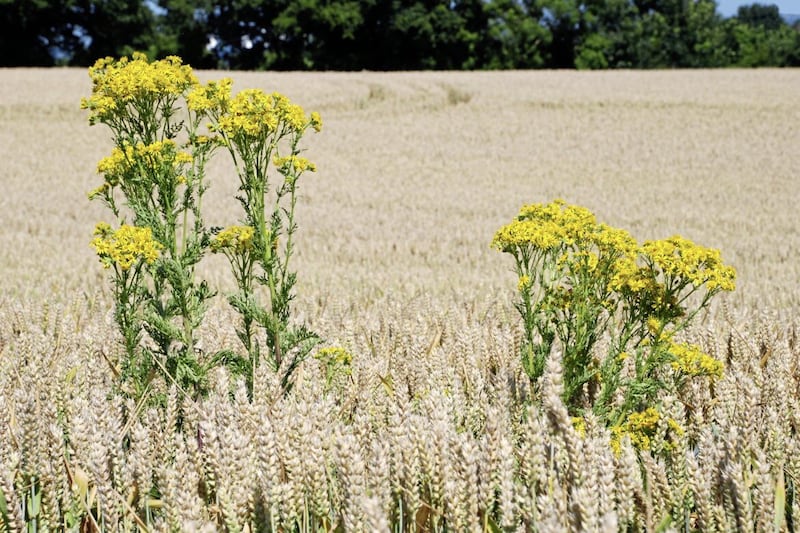MARTIN Luther King Junior famously lamented that "the most segregated hour of Christian America is 11am on a Sunday morning", while Archbishop Desmond Tutu told the World Council of Churches in 2006 that one of the reasons apartheid had endured for so long in South Africa was because the Church was divided.
The theme for this year's Week of Prayer for Christian Unity is 'Be-Longing: Praying for Unity amidst Injustice' and it challenges the Church to 'do good; seek justice' (Isaiah 1:17) in a world wounded by racism and other forms of exclusion and injustice.
It is inspired by the experience of the Minnesota Council of Churches in the wake of the murder of George Floyd in Minneapolis in 2020. They invite us to follow their emotional journey through prayer and scripture reflection.
They convey deep feelings of belonging and connection as they reflect on the beauty of God's creation in the rocks under our feet and the water that is the source of life. This gives way to pain and anger as they relate how the abuses of colonialism and the racism that remains in its wake have impacted their lives and wounded their communities.
In Churches Together in Britain and Ireland we adapt the globally-produced materials for the British and Irish Churches, seeking to bring out the local resonances of these global themes.
This year we felt a particular sense of responsibility to honour the very honest, raw and powerful sharing of the Minnesota Churches. What happened in Minneapolis in 2020 sent shockwaves around the world. With his dying words, "I can't breathe", George Floyd gave voice to the experience of victims of racism and oppression everywhere and we understood, perhaps more clearly than ever, that the underlying causes of racism and other hate crimes are global as well as local.
In sharing their pain, the authors sought to help and encourage others to tell their story in their own contexts, but what came through very strongly in our work was how vulnerable people from ethnic and racial minorities in Britain and Ireland still feel today in talking about their experiences of racism.
In response to the Black Lives Matter movement there were more invitations from churches for people to share about their suffering, but expressions of anger and calls for restorative justice were less welcome. Victims and survivors of the conflict on this island recount similar experiences of feeling silenced and being excluded because their cries for justice disrupt the social peace.
The work of Christian unity is the search for God's justice, which surpasses all human understanding, and God's peace, which is more than just the absence of violence.
We are reminded in our discomfort that we cannot have Christian unity in a world that is divided by racism. At the same time, we find support in the solidarity with our fellow Christians and in the reminder that we are all in need of God's saving grace.
Churches on this island have often taken the Week of Prayer as an opportunity to focus on sectarianism and reconciliation between Catholics and Protestants.
This year's theme once again offers valuable insights for reflection on what it means to do the work of justice in our context. At the same time, it is important to acknowledge that our understandable emphasis on sectarianism has led to insufficient attention to the damaging impact of racism on the lives of people in our communities.
People from ethnic and racial minority backgrounds, and from faiths other than Christian, have often found themselves written out of the story of the conflict, and left out of conversations about the future.
Young people will often cite racist attacks on refugees, migrants and people of other ethnicities, faiths and cultures as something that undermines their sense of belonging and their hope for the future.
This Week of Prayer for Christian Unity gives us an opportunity to engage in real soul-searching together. If there are people from ethnic and racial minorities in our churches, do they feel that they belong, or do they feel like outsiders? Have they been asked how they feel?
If people from ethnic and racial minorities are not present, do we consider them as part of 'our community'? If our church does not reflect the diversity of the surrounding community what might we be called to do? Do we take responsibility for the eradication of racism and the support of its victims, close to home and around the world?
The unity we seek is not one that ignores our differences, but one that values our diversity as part of the beauty of God's creation.
:: Nicola Brady is the General Secretary of Churches Together in Britain and Ireland.
:: Resources for the Week of Prayer for Christian Unity in English and Irish are available from ctbi.org.uk. It runs from Wednesday January 18 to January 25.








